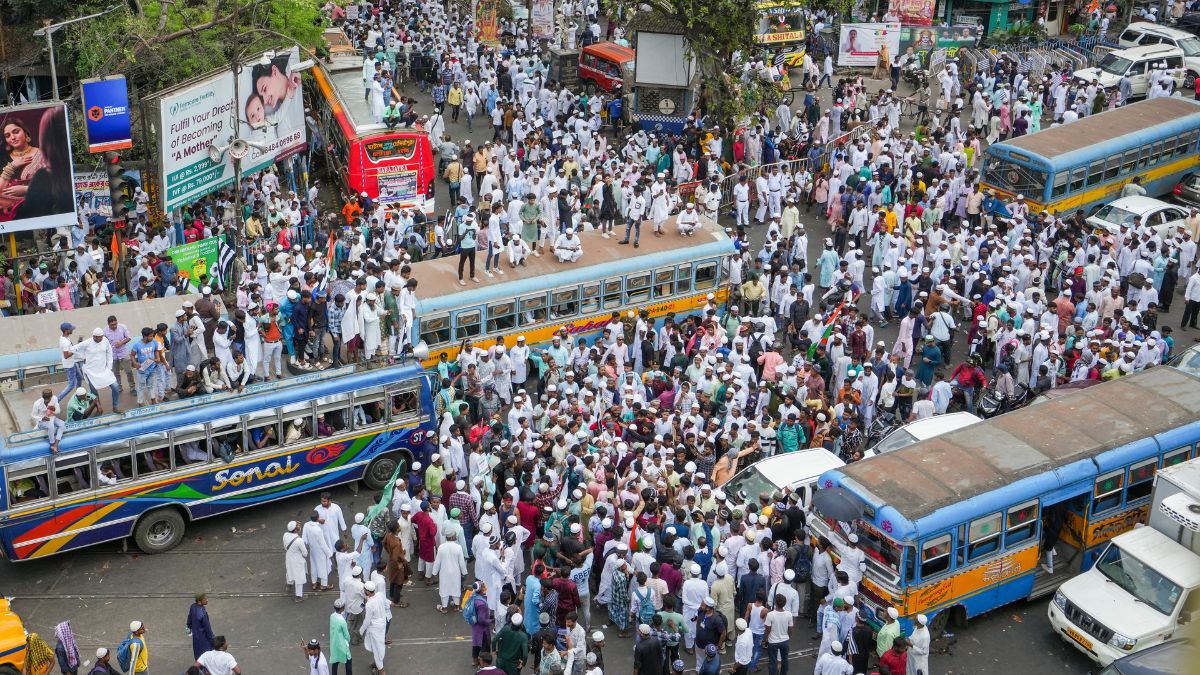
The matter was presented before the top court for hearing for the first time on Wednesday, with the SC posing a series of questions to both the petitioners as well as the Centre.
The Supreme Court will continue to hear a raft of petitions challenging the constitutional validity of the Waqf (Amendment) Act, 2025 on Thursday, with the hearing set to begin at 2:00 PM.
The matter was presented before the top court for hearing for the first time on Wednesday, with the SC posing a series of questions to both the petitioners as well as the Centre.
A bench comprising Chief Justice Sanjiv Khanna and Justices Sanjay Kumar and K.V. Viswanathan was willing to issue a notice on the petitions and pass a short order yesterday, but the Centre and some states requested time to place their submissions before any order is passed.
The three primary concerns raised during the hearing included the the potential invalidation of user-declared Waqf properties previously upheld by court decrees, the inclusion of a non-Muslim majority in the Waqf Council, and the issue of disputed Waqf properties currently under inquiry by the collector, where a declaration may result in them no longer being treated as Waqf properties.
Here are the top quotes from the first Waqf hearing:
-
"We have been told the Delhi High Court building is on Waqf land, Oberoi Hotel is on Waqf land… We are not saying all Waqf-by-user properties are wrongly registered, but there are some genuine areas of concern, too," Justice Sanjiv Khanna observed.
- "How will you register such Waqfs by user who have been there for long? What documents will they have... It will lead to undoing something. Yes, there is some misuse. But there are genuine ones also. I have gone through privy council judgments as well. Waqf by user is recognised. If you undo it, then it will be a problem," the Chief Justice said to Solicitor General Tushar Mehta, appearing for the Centre.
- During one exchange, Justice Khanna noted: "When a public trust is declared Waqf 100 or 200 years ago... suddenly you say it is being taken over by the Waqf Board". Mehta intervened and said that it means if one has a Waqf, it can be made into a trust and there is an enabling provision for it. The Chief Justice then remarked: "You cannot rewrite the past!"
- In another exchange the Chief Justice said, "So, as per the Act, eight members are Muslims. Two may not be Muslims. Then the rest are non-Muslims." To this, Mehta remarked, "Then this bench also cannot hear the case."
CJI Khanna retorted: "What? When we sit over here, we lose our religion. For us, both sides are the same. How can you compare it with the judges? Why not have non-muslims also in the advisory board of Hindu endowments then?
"Are you saying that, from now on, you will allow Muslims to be part of the Hindu endowment boards. Say it openly," the bench said. - Senior advocate Kapil Sibal, appearing for the petitioners asked: "Who is the State to tell us how inheritance will happen in my religion?” as he read out sections of the new law. Sibbal argued that inheritance, in Islam, happens only after death, and that the government was trying to interfere before that.
Responding to this, CJI Khanna said: "But in Hindus it does happen... so Parliament has enacted a law for Muslims. Maybe it’s not like the law for Hindus. Article 26 will not bar the enactment of the law in this case. Article 26 is universal — and it is secular in the fashion that it applies to all." - "You are dealing with legislation. There was a joint parliamentary committee. 38 sittings were there. It visited many areas... it examined over 98 lakh memoranda. Then it went to both Houses and then the law was passed," Solicitor General Mehta told the court.
The Waqf (Amendment) Act, 2025, was notified recently after it got assent from President Droupadi Murmu on April 5 following its passage from Parliament. The Bill was passed in the Rajya Sabha with 128 members voting in favour and 95 opposing it. Lok Sabha cleared the bill with 288 members supporting it and 232 against it.
As many as 72 petitions, including those by All India Muslim Personal Law Board (AIMPLB), AIMIM leader Asaduddin Owaisi, Jamiat Ulama-i-Hind, the Dravida Munnetra Kazhagam (DMK), Congress MPs Imran Pratapgarhi and Mohammad Jawed, Samajwadi Party, Trinamool Congress among others have been filed challenging the validity of the Act.
The Centre filed a caveat in the Supreme Court on April 8 and sought a hearing before any order was passed in the matter.















0 Comments